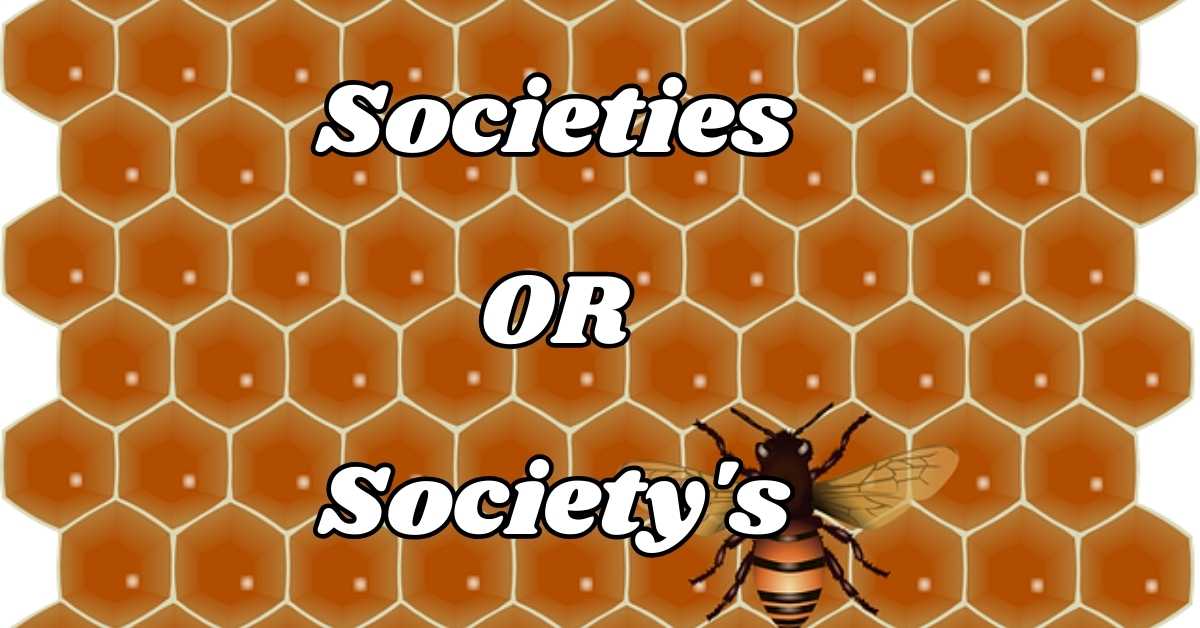Societies or Society’s can be confusing terms for many, but understanding their differences is essential for effective communication in English. While “societies” refers to multiple social groups or communities, “society’s” indicates possession, showing ownership or belonging to a single society.
These distinctions play a crucial role in how we discuss various societal issues, from cultural norms to responsibilities within communities. By grasping the correct usage of these terms, you can enhance your writing and conversations.
In this article, we will explore the meanings, origins, and grammatical rules surrounding societies vs society’s, providing you with clear examples and practical insights for everyday use.
Quick Summary
At first glance, societies vs society’s might appear interchangeable, but they serve different purposes in language. “Societies” is the plural form of “society,” referring to multiple social groups or communities.
On the other hand, “society’s” is the possessive form, indicating ownership or belonging to a single society. Understanding these distinctions will enhance your word usage in English and improve your communication skills.
Understanding Societies or Society’s
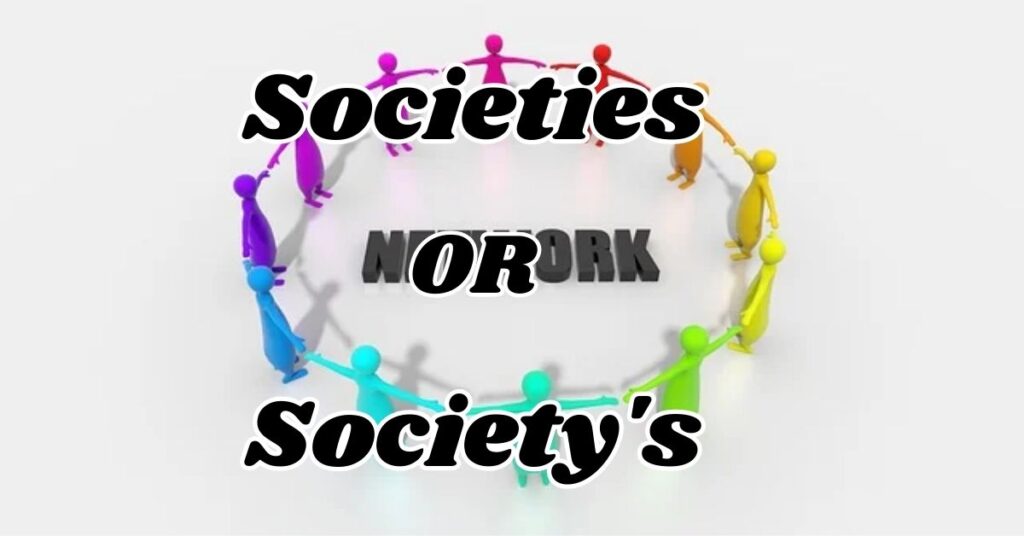
“Societies” refers to groups of individuals who share common interests, norms, and values. These can be large or small and can encompass various social groups such as cultural organizations, clubs, or even entire nations.
For example, several societies worldwide tackle issues like healthcare provision and environmental protection. In contrast, “society’s” denotes possession. When we say “society’s responsibilities,” we refer to the duties or obligations that a particular society holds.
This could involve addressing societal issues like economic crises or ensuring healthcare standards for its members. Recognizing this distinction helps clarify your writing and ensures that you communicate effectively.
What is the Plural of Society?
The plural of “society” is “societies.” In English grammar, this follows standard pluralization rules, where we typically add an “-s” to form plural nouns. For instance, if you are discussing multiple communities or groups, you would say, “The various societies address different societal challenges.” This plural form allows us to talk about multiple entities while maintaining clarity.
Origins of the Societies
The origins of societies date back to our earliest human ancestors, who lived in hunter-gatherer societies. These groups relied on foraging for food and were nomadic, moving based on seasonal availability.
As human evolution progressed, the development of agriculture marked a significant shift. Settled farming allowed for larger populations and the emergence of complex social structures.
This led to social stratification, where hierarchies based on wealth and power formed. Early civilizations arose in regions like Mesopotamia and Egypt, showcasing advanced technologies and organized governments, fundamentally transforming human interactions and societal organization.
Origins of the Society’s
The term “society” comes from the Latin word “societas,” which means “fellowship,” “alliance,” or “association.” This Latin root is derived from “socius,” meaning “comrade,” “friend,” or “ally.”
Essentially, the word reflects the idea of a group of people living together in a community, emphasizing their connection and interdependence. Additionally, the English term was influenced by the French word “société,” further shaping its modern usage.
Societies: Definition and Usage
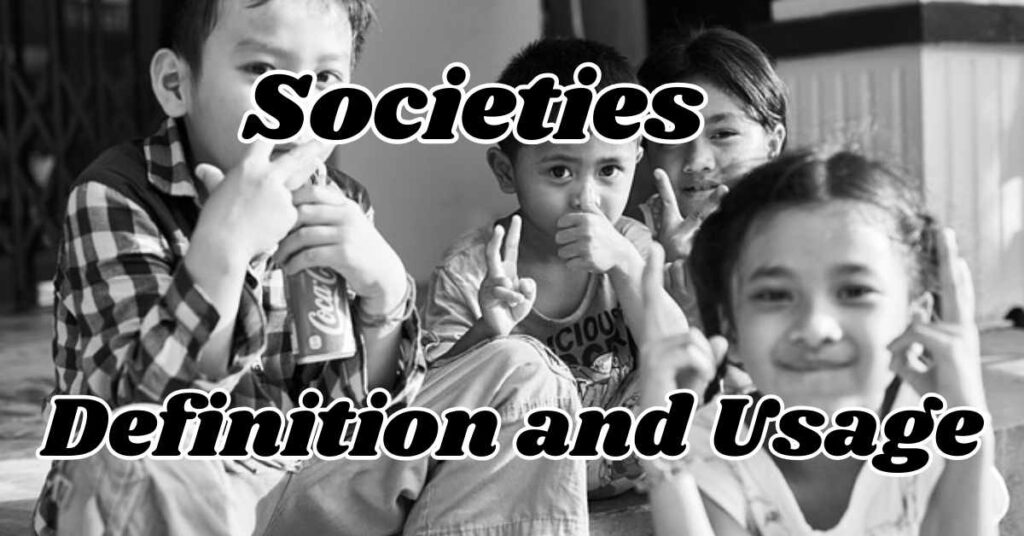
“Societies” refers to groups of individuals who share common interests, values, and norms. These can range from small communities to large nations, encompassing various social structures.
Societies are characterized by their interactions and relationships among members, often shaped by cultural, economic, and political factors. Understanding the concept of societies is essential for studying human behavior and social dynamics, as they play a crucial role in shaping our experiences and identities within the world.
Societies Meanings
“Societies” refers to the plural form of “society” and encompasses multiple groups of people who share common goals, norms, or cultural values. These groups can vary widely, from local communities to global organizations.
The term also highlights diversity, as different societies often have distinct traditions, beliefs, and social structures.
Societies Usage in a Sentence
- Several societies worldwide are working together to combat climate change.
- Many societies have unique customs that reflect their cultural heritage.
- The study of societies helps us understand human behavior better.
- Different societies face various challenges related to economic stability.
- Societies often evolve due to technological advancements.
Synonyms of Societies
- Communities
- Groups
- Organizations
- Associations
- Collectives
- Networks
- Coalitions
- Alliances
- Clans
- Guilds
Society’s: Definition and Usage
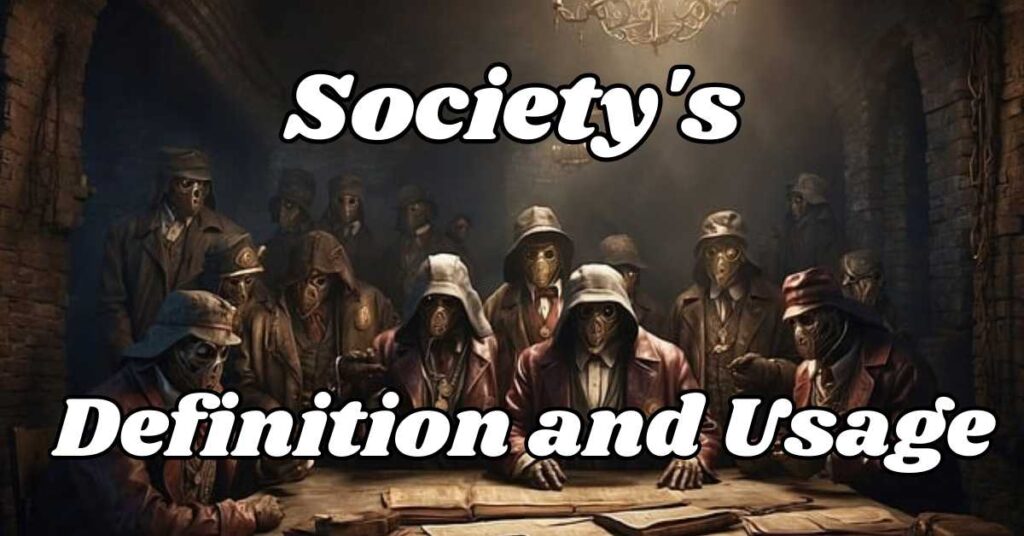
“Society’s” is the possessive form of “society,” indicating ownership or belonging to a specific community. It highlights the responsibilities, customs, or characteristics that define a particular society. For example, when we discuss “society’s impact on culture,” we refer to how that society influences cultural practices and values.
Using “society’s” correctly helps clarify relationships within sentences, allowing for more precise communication about societal roles and expectations in various contexts.
Society’s Meanings
“Society’s” is the singular possessive form of “society,” signifying ownership or association with a specific community. It is used to describe a society’s unique traits, responsibilities, or contributions.
For instance, “society’s expectations” refers to the norms or standards set by a particular group. This form is essential for discussing how a single society influences areas like culture, governance, or social behavior, emphasizing its role in shaping individual and collective experiences.
Society’s Usage in a Sentence
- Society’s expectations can sometimes limit individual freedom.
- The society’s customs dictate how members interact with each other.
- Society’s responsibilities include providing education for all its citizens.
- The society’s impact on local culture is significant.
- Society’s values evolve as new generations emerge.
Synonyms of Society’s
- Community’s
- Group’s
- Organization’s
- Association’s
- Collective’s
- Network’s
- Coalition’s
- Alliance’s
- Clan’s
- Guild’s
Side by Side Comparison
| Term | Definition | Example Usage |
| Societies | Plural form of society | Various societies promote a culture |
| Society’s | A possessive form indicating belonging | The society’s rules are strict |
Everyday Usage Examples

In everyday conversations, both terms appear frequently but in different contexts. For instance, you might hear someone say, “Many societies struggle with healthcare issues,” highlighting multiple communities facing similar challenges.
Alternatively, a discussion about a specific community might include a statement like “The society’s approach to education is innovative,” emphasizing ownership over educational practices.
Examples of Societies in a Sentence
- Many societies celebrate diversity through festivals.
- Some societies prioritize environmental protection over economic growth.
- The research focused on how different societies adapt to change.
- Various societies have developed unique languages over time.
- Societies often reflect the values of their members through traditions.
Examples Society’s in a Sentence
- The society’s leadership plays a crucial role in community development.
- Society’s challenges require collective action from all members.
- The society’s history is rich with traditions passed down through generations.
- Society’s influence on individual behavior cannot be underestimated.
- The society’s goals include promoting equality among its members.
Common Confusions and How to Avoid Them
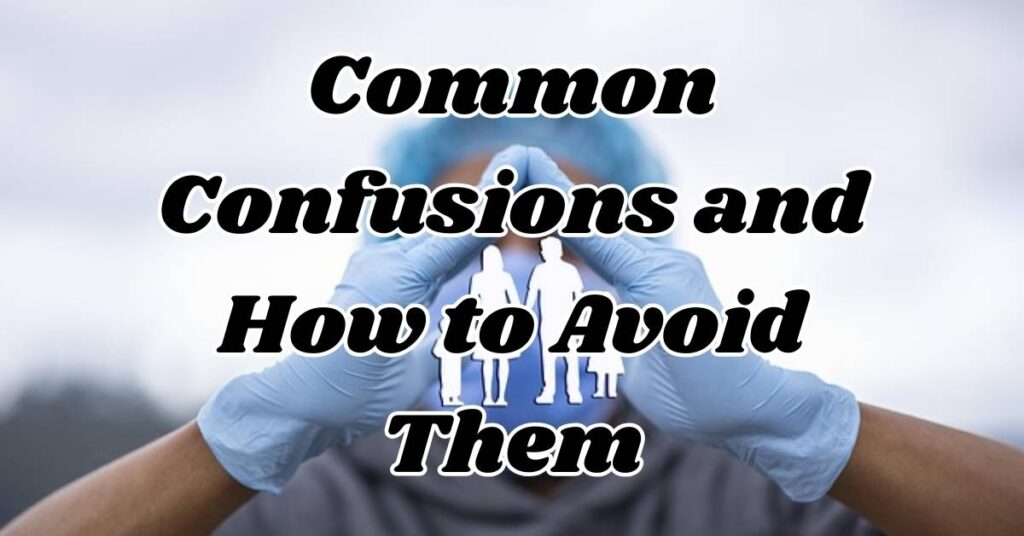
Many people confuse “societies vs society’s,” leading to errors in writing and speech due to misunderstanding possessive grammar rules or apostrophe usage in English grammar contextually related to ownership or plurality distinctions between singular possessive forms and plural possessive forms.
To avoid confusion, remember that if you’re talking about more than one group, use “societies.” If you’re indicating something belongs to one specific group, use “society’s.” Regular practice will help reinforce these distinctions.
More Article: Incite or Insight: What’s the Difference?
FAQs: Societies or Society’s
Is society’s grammatically correct?
Yes, society’s is grammatically correct, as it indicates possession, such as in “society’s values.”
Is there a plural for society?
Yes, the plural form of society is societies, which refers to multiple groups or communities.
What is the problem with plural societies?
The term societies can sometimes lead to confusion about which specific groups are being referenced, as it lacks context.
What is an example of a plural society?
An example of a plural society includes diverse cultural or ethnic groups, such as Canada, which embraces multiculturalism.
Conclusion
Understanding the difference between societies or society’s is crucial for effective communication. While “societies” refers to multiple groups sharing common values and norms, “society’s” indicates possession, highlighting the responsibilities or characteristics of a specific community.
By grasping these distinctions, you can enhance your writing and discussions about social structures and relationships. Whether addressing societal issues or exploring cultural dynamics, using these terms accurately will improve clarity and deepen your understanding of the complex world we live in.
Related Post: Usage or Useage: What’s the Difference?

